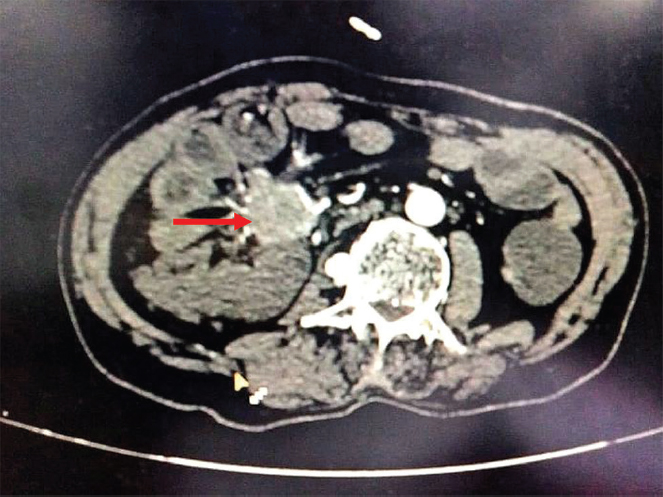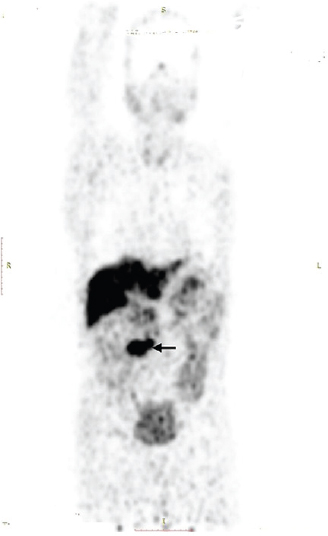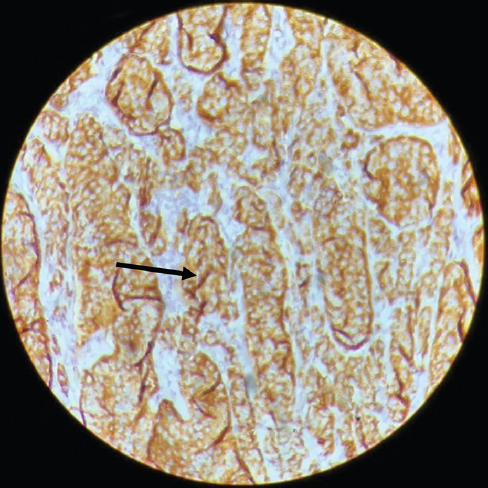Translate this page into:
Carcinoid tumour of small bowel mesentery: A rare entity
*For correspondence: sudattaw@gmail.com
-
Received: ,
This is an open access journal, and articles are distributed under the terms of the Creative Commons Attribution-NonCommercial-ShareAlike 4.0 License, which allows others to remix, tweak, and build upon the work non-commercially, as long as appropriate credit is given and the new creations are licensed under the identical terms.
This article was originally published by Wolters Kluwer - Medknow and was migrated to Scientific Scholar after the change of Publisher.
A 65 yr old male† presented, in General Surgery outpatient department, T.N. Medical College and B.Y.L. Nair Charitable Hospital, Mumbai, India in September 2019, with complaints of pain in abdomen and loose motions since one month. Abdominal examination revealed an ill-defined, mobile and non-tender lump in the right iliac fossa. On computed tomography, an ill-defined mesenteric mass with radiating soft tissue angulation of mid and distal ileum was seen (Fig. 1). Colonoscopy was normal. 68-Gallium DOTA-TATE positron emission tomography scan revealed expression of somatostatin receptor 2, present in neuroendocrine tumours in mesenteric mass and right paracaval lymph node (Fig. 2) suggestive of a carcinoid tumour. The patient was operated with resection of mesenteric mass with ileotransverse anastomosis. Histopathology showed grade 1 neuroendocrine tumour with lymph node metastasis. Immunohistochemistry showed chromogranin strongly diffuse positive (Fig. 3). The patient was asymptomatic at two months of follow up.

- Computed tomography scan showing mass in the mesentery.

- Positron emission tomography scan showing expression of somatostatin receptor 2 in mesenteric mass and right paracaval lymph node.

- Immunohistochemistry showed chromogranin strongly diffuse positive magnification is ×100 used is chromogranin.
Carcinoid tumours mostly occur in the lungs, appendix, small intestine, rectum and pancreas. However, primary carcinoid tumours of the mesentery are rare. Moreover, carcinoid tumours arising in the mesentery are usually metastatic. In this case, there was no evidence of tumour anywhere else in the abdomen.
Conflicts of Interest: None.





